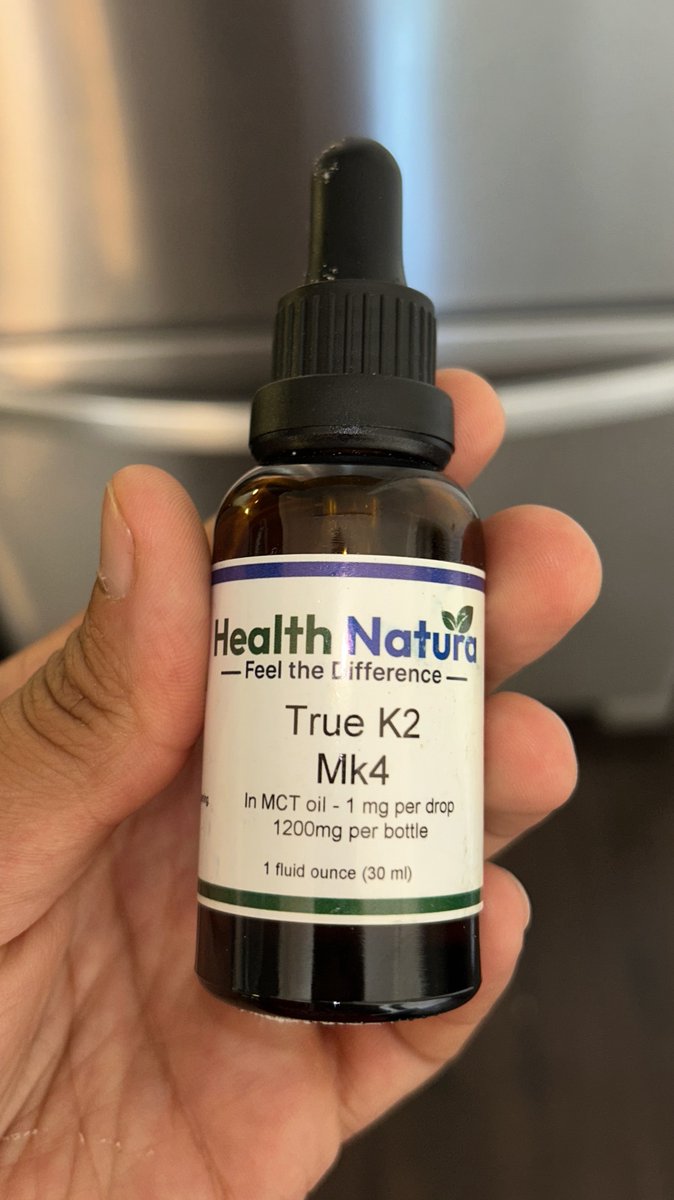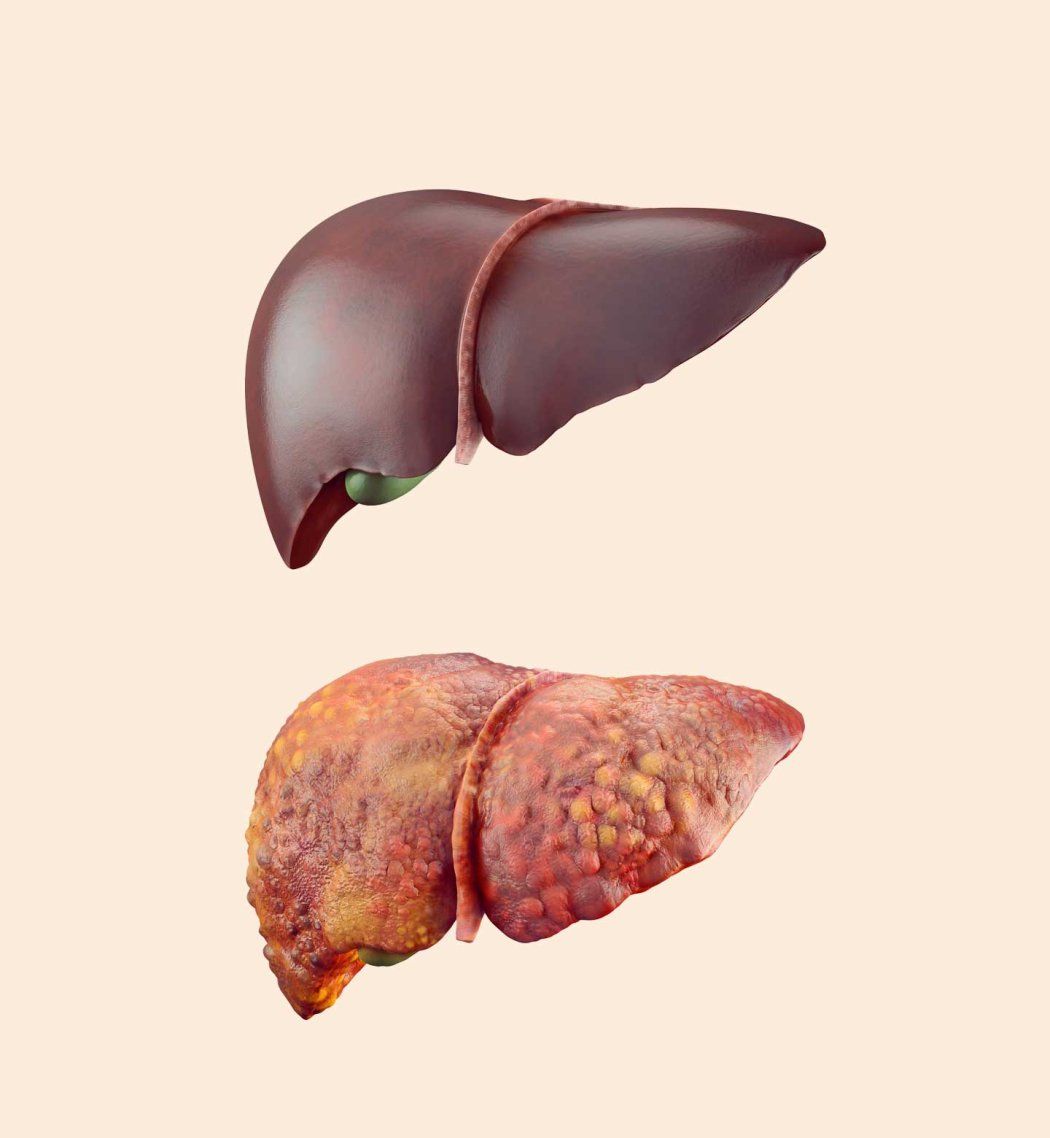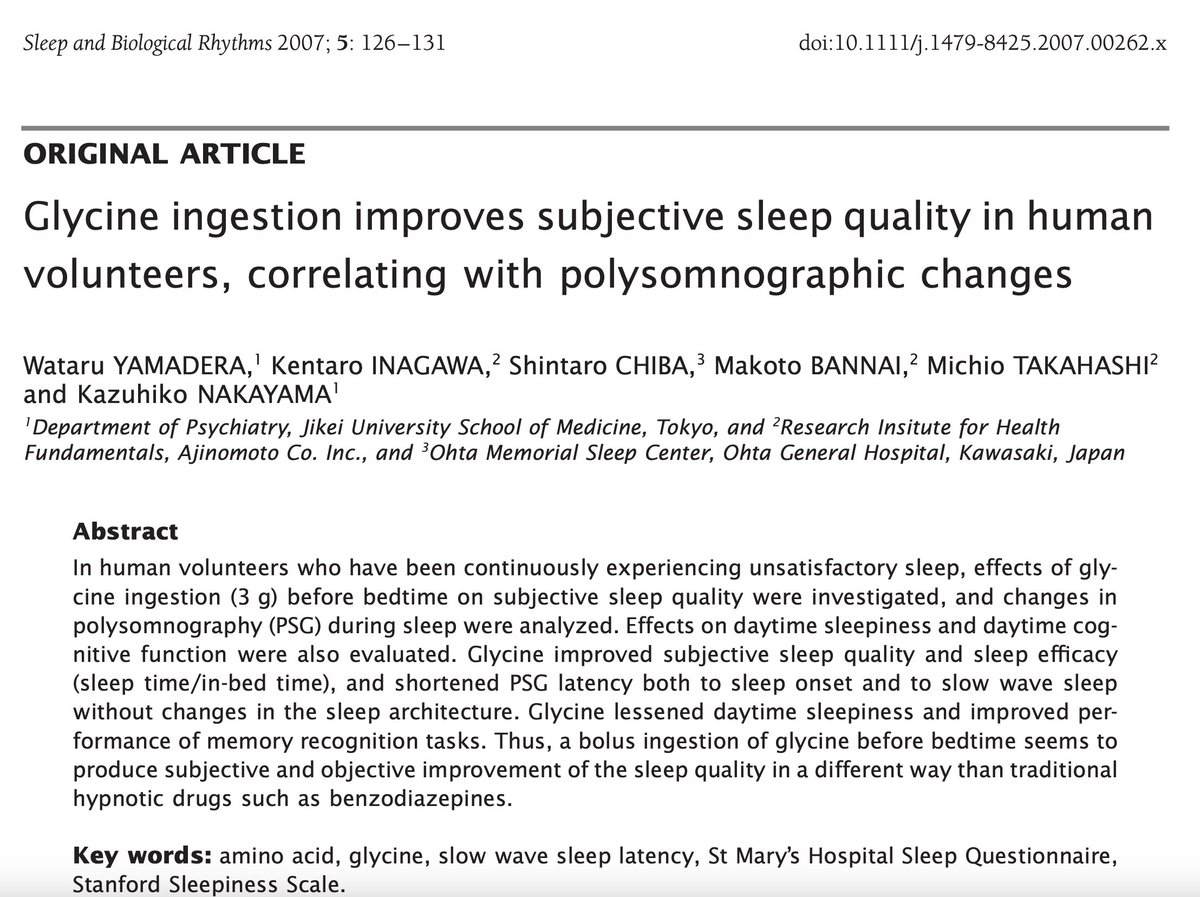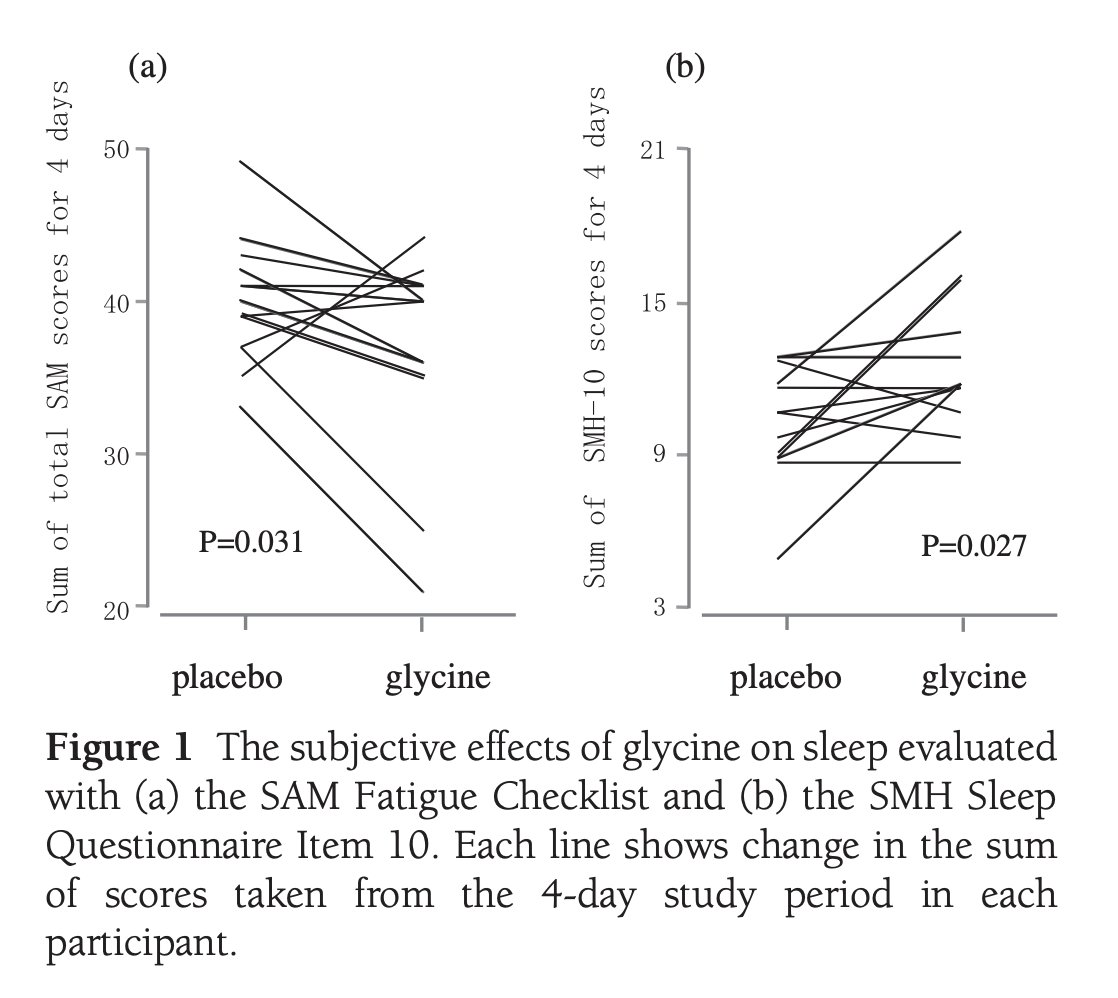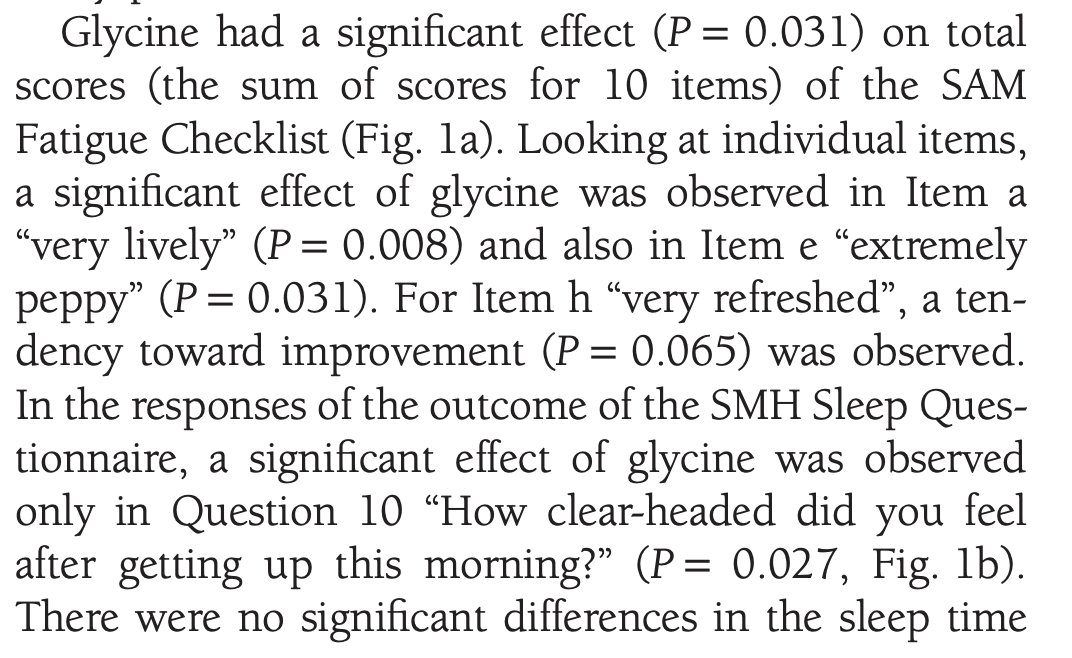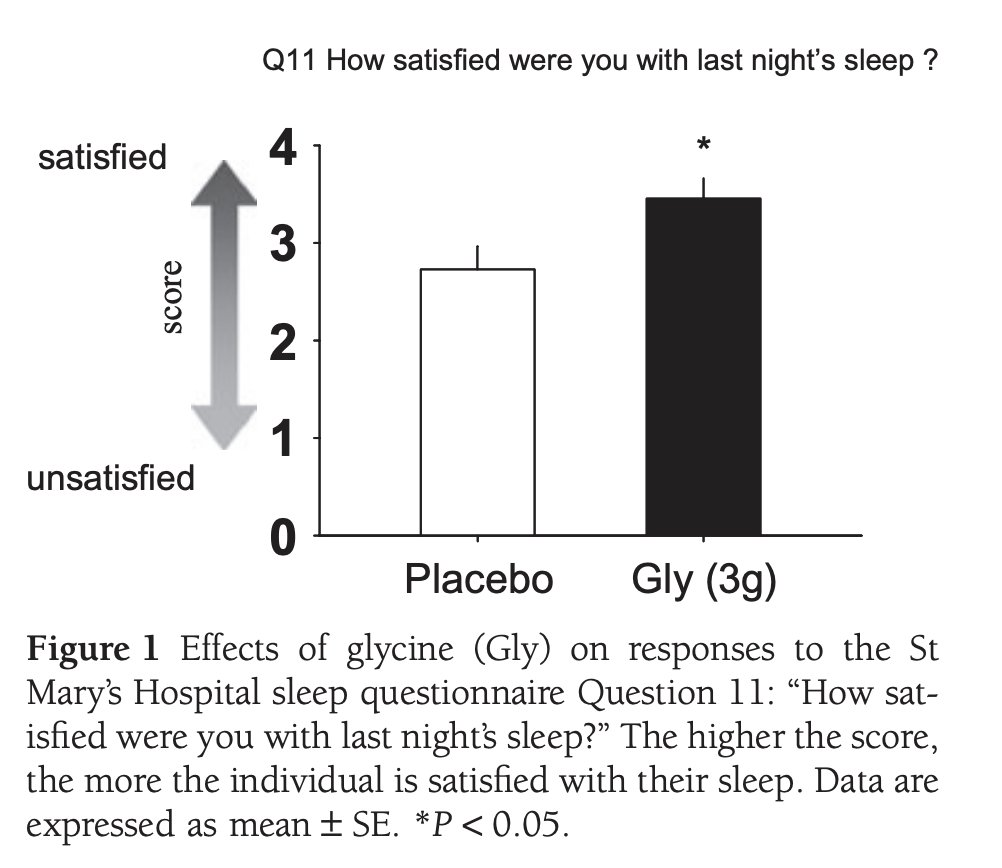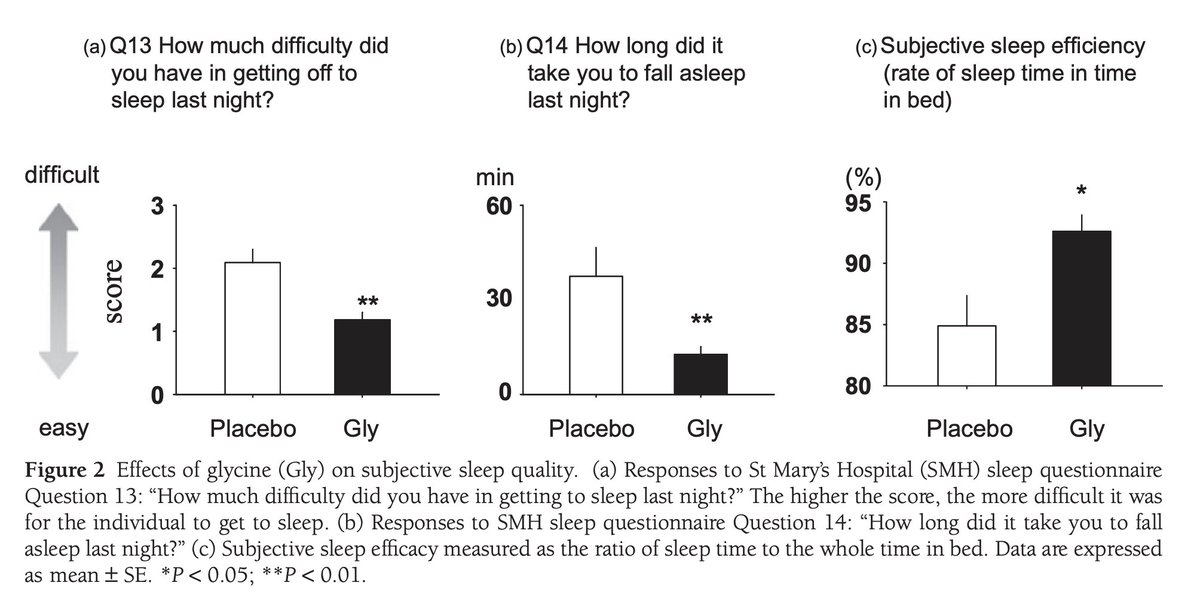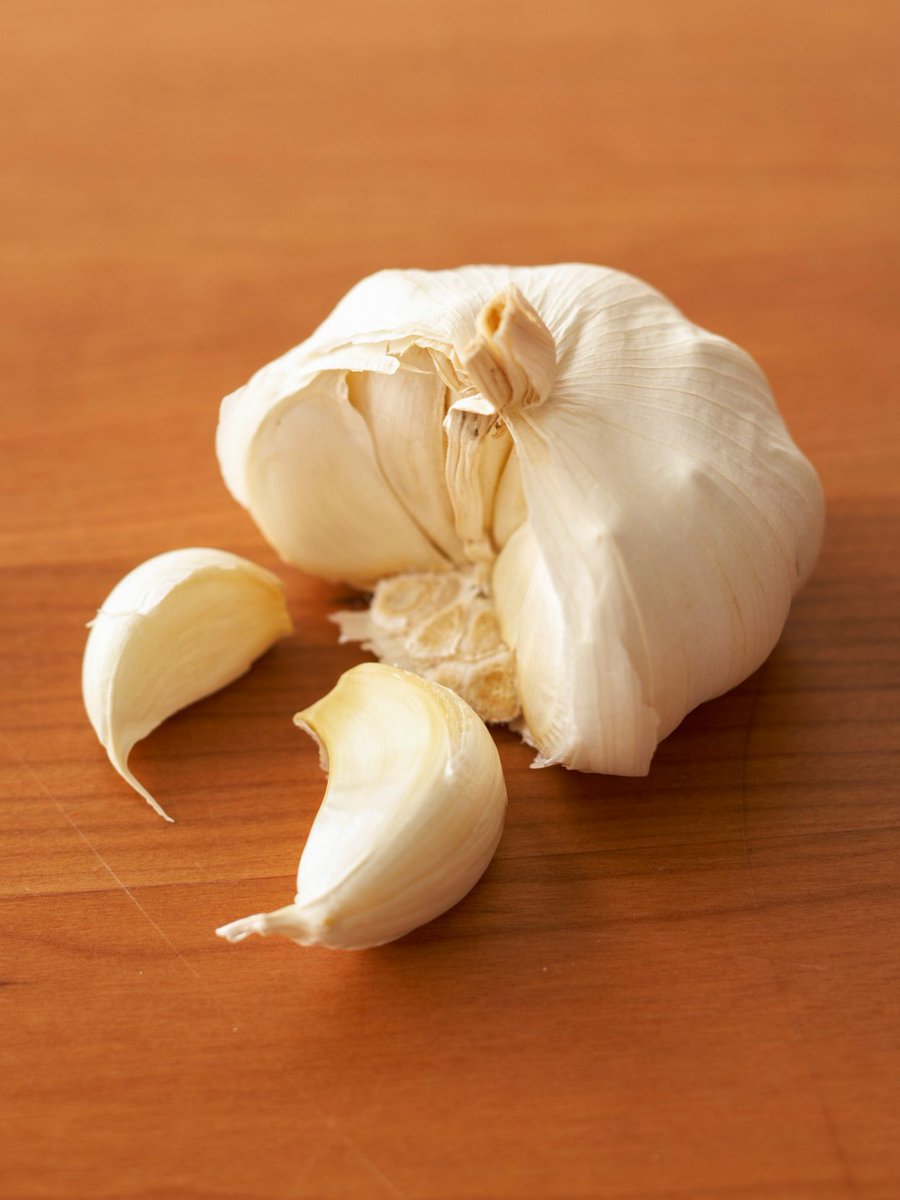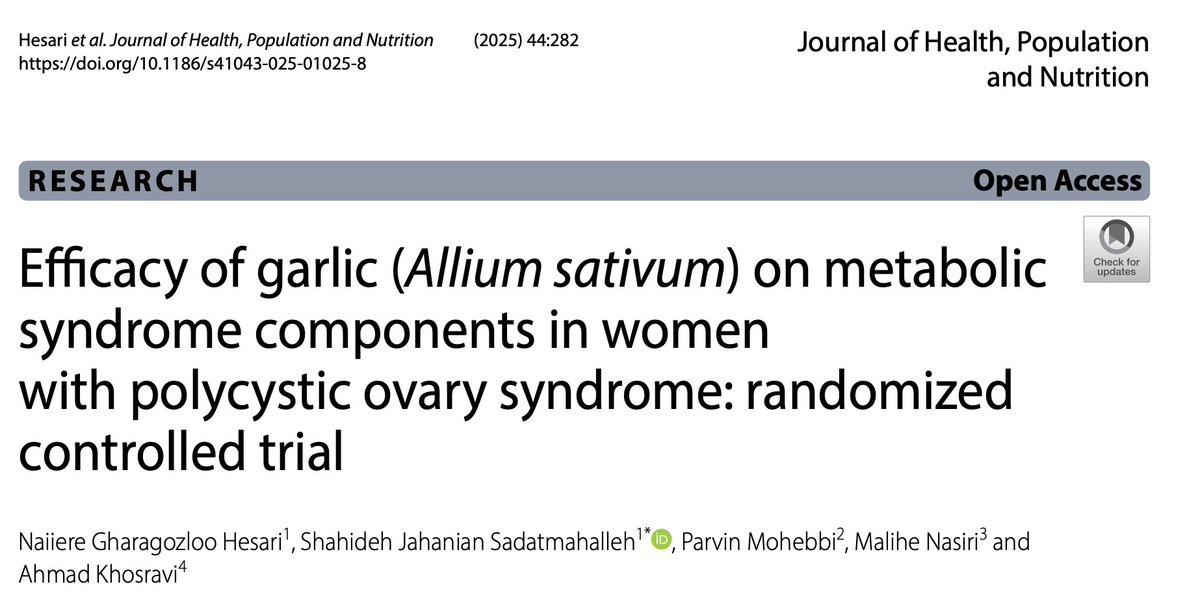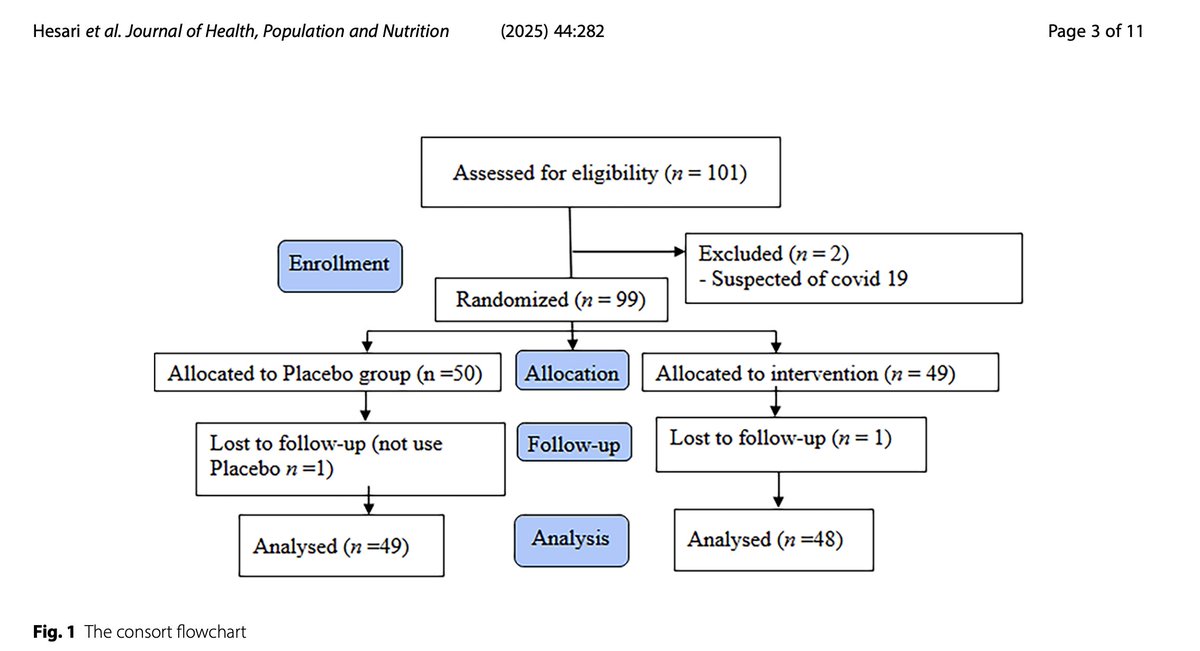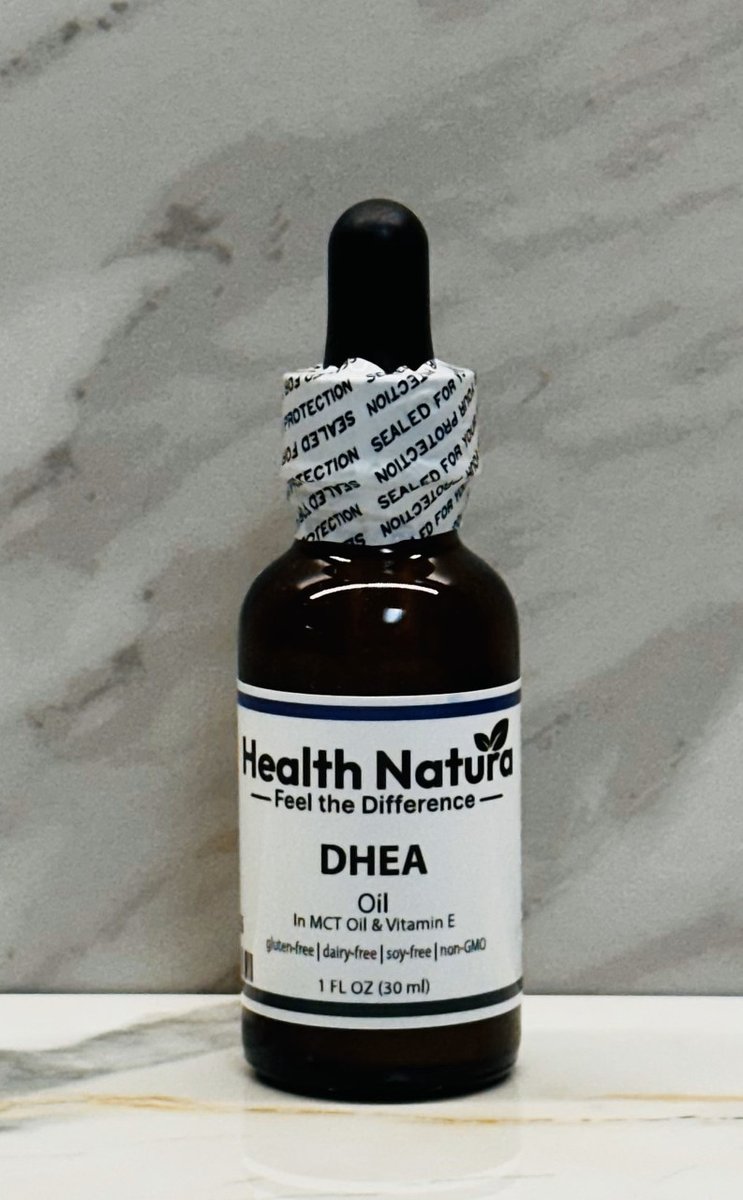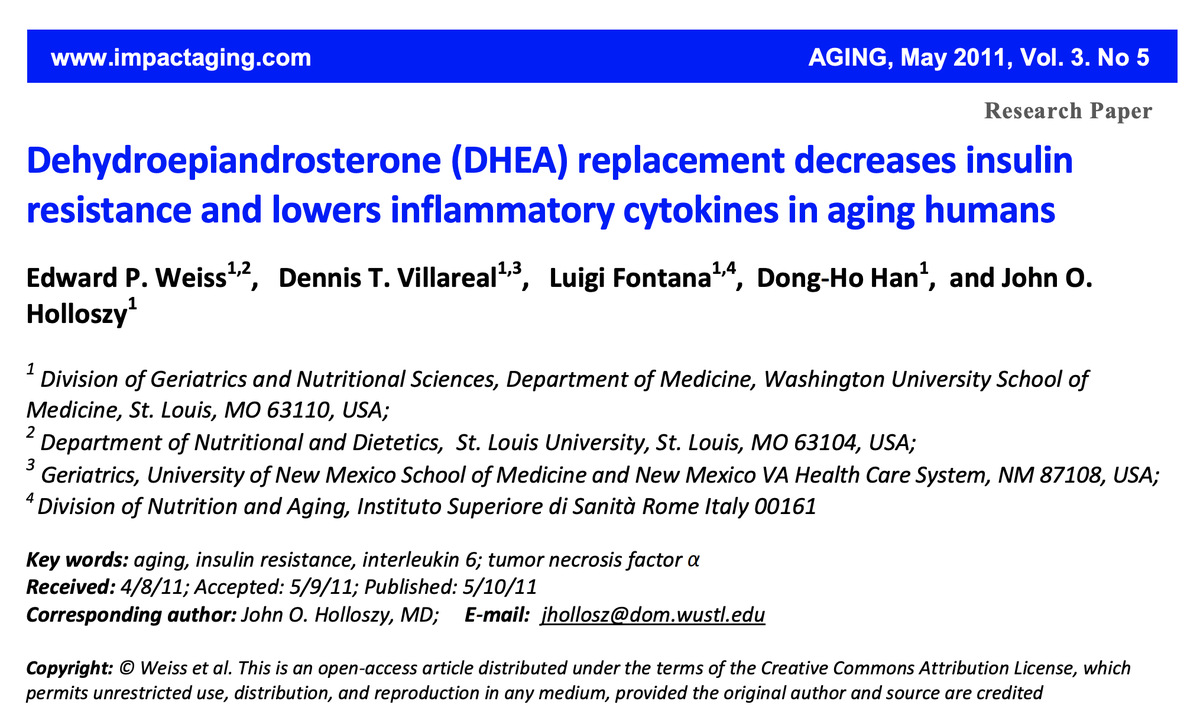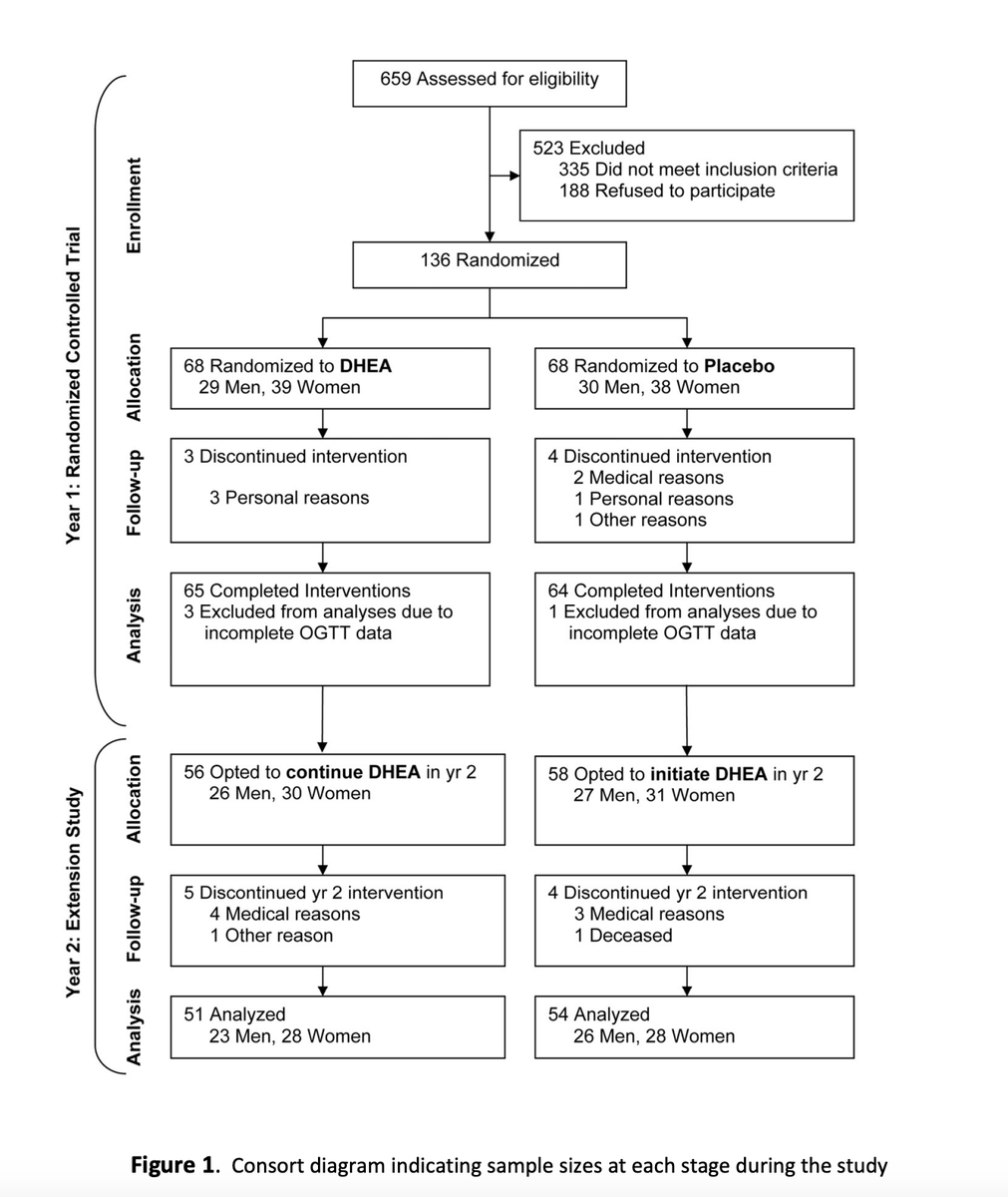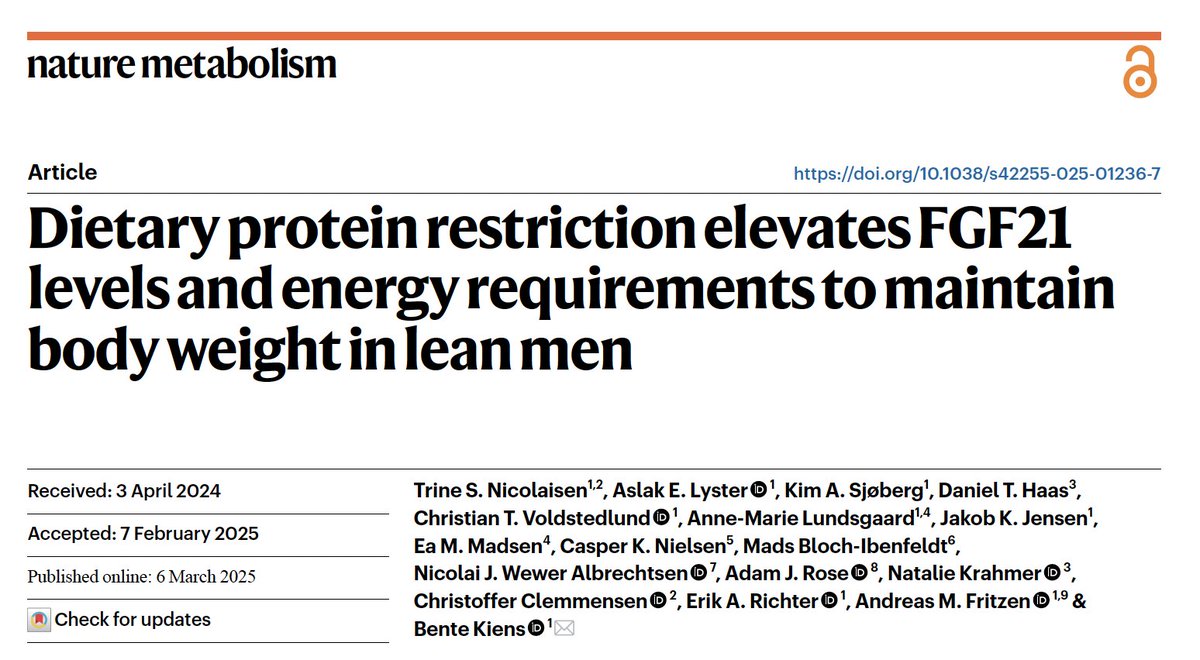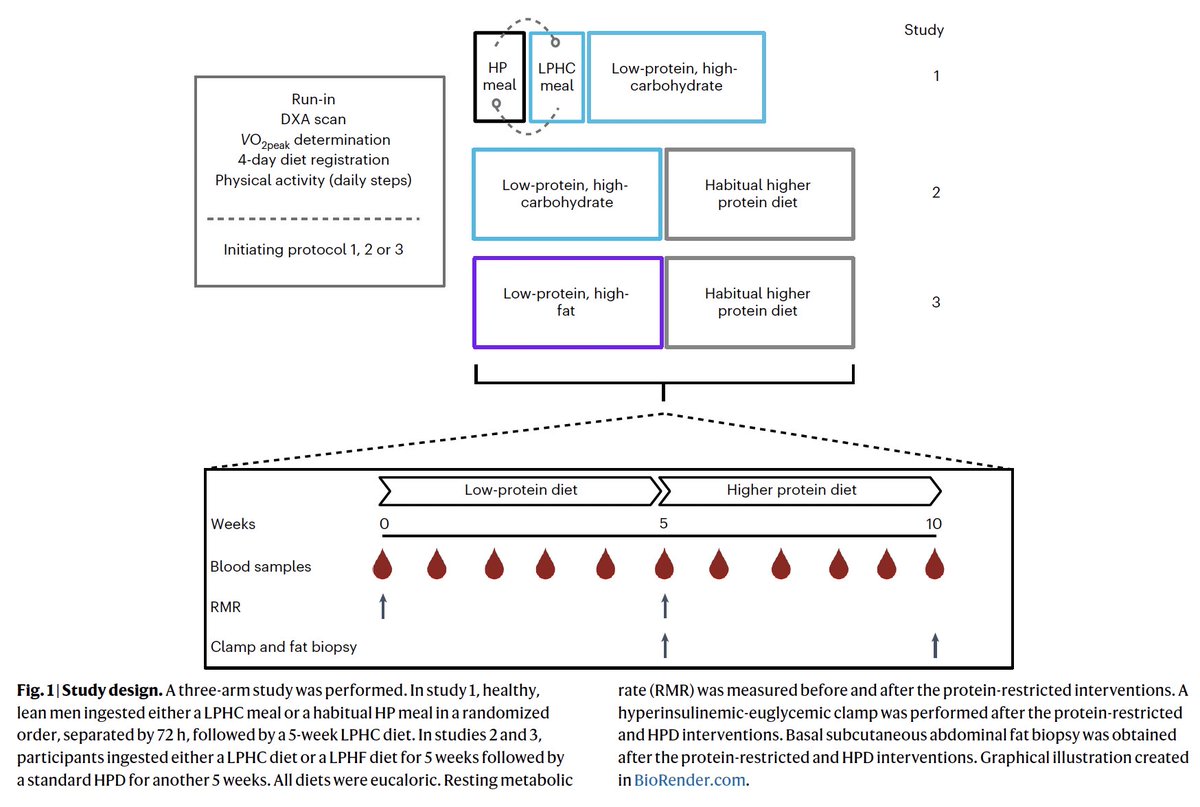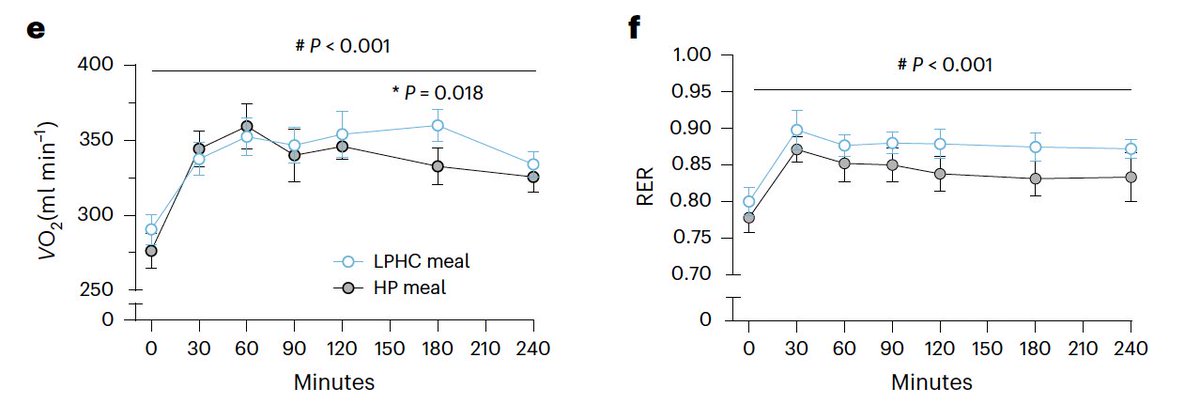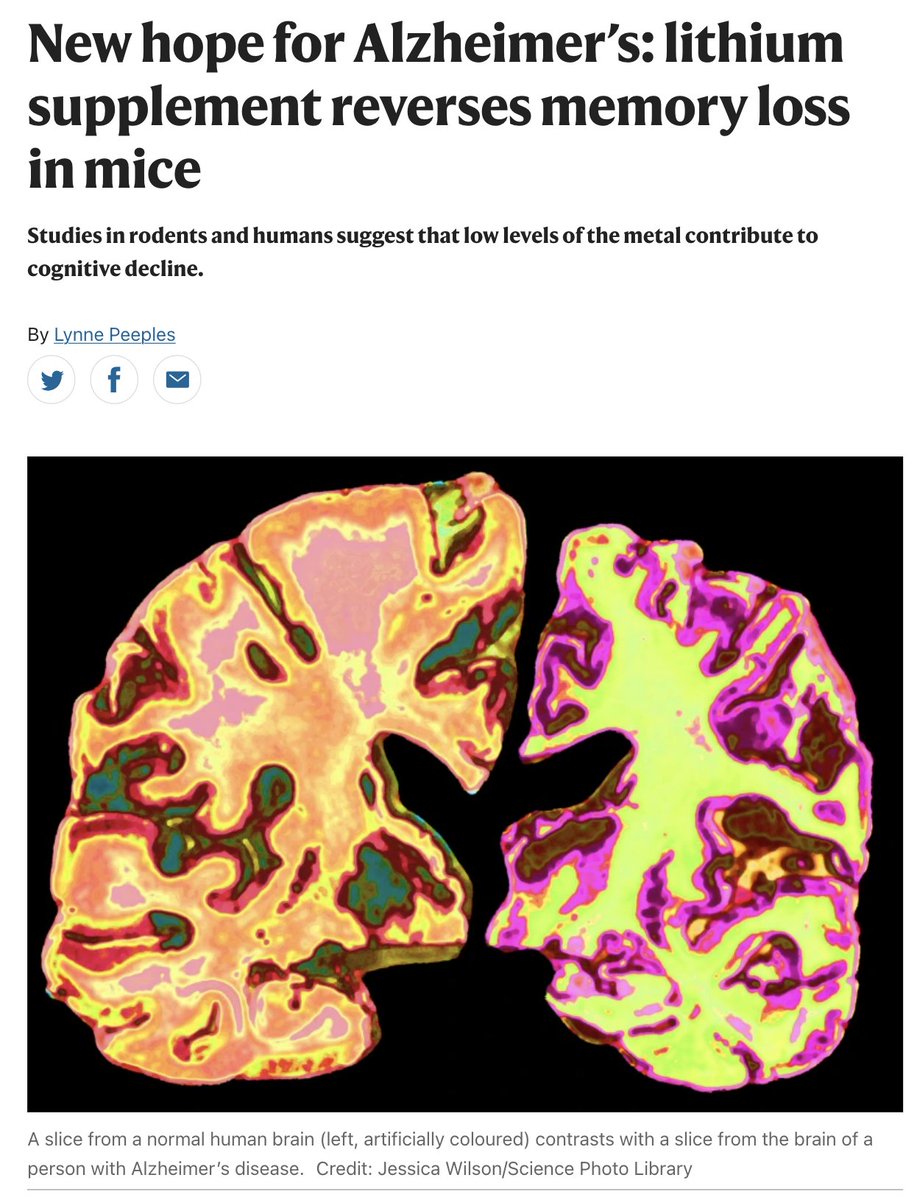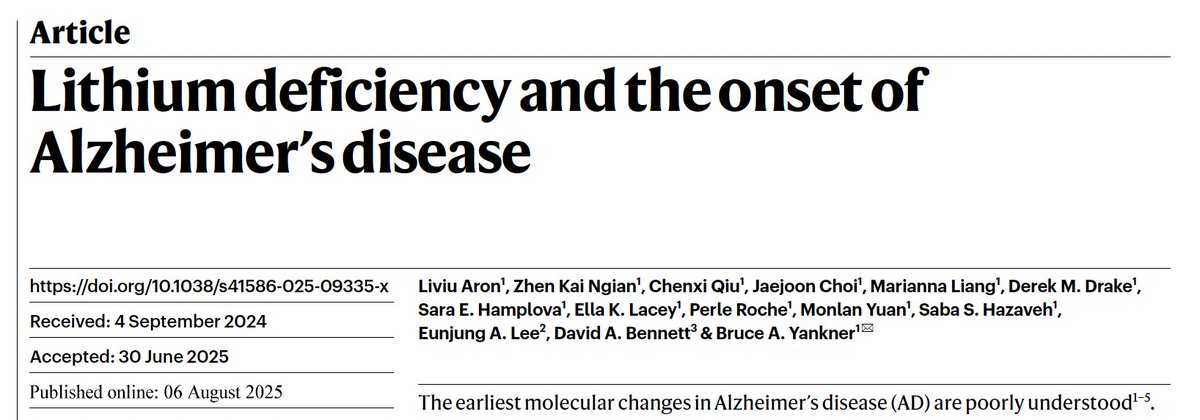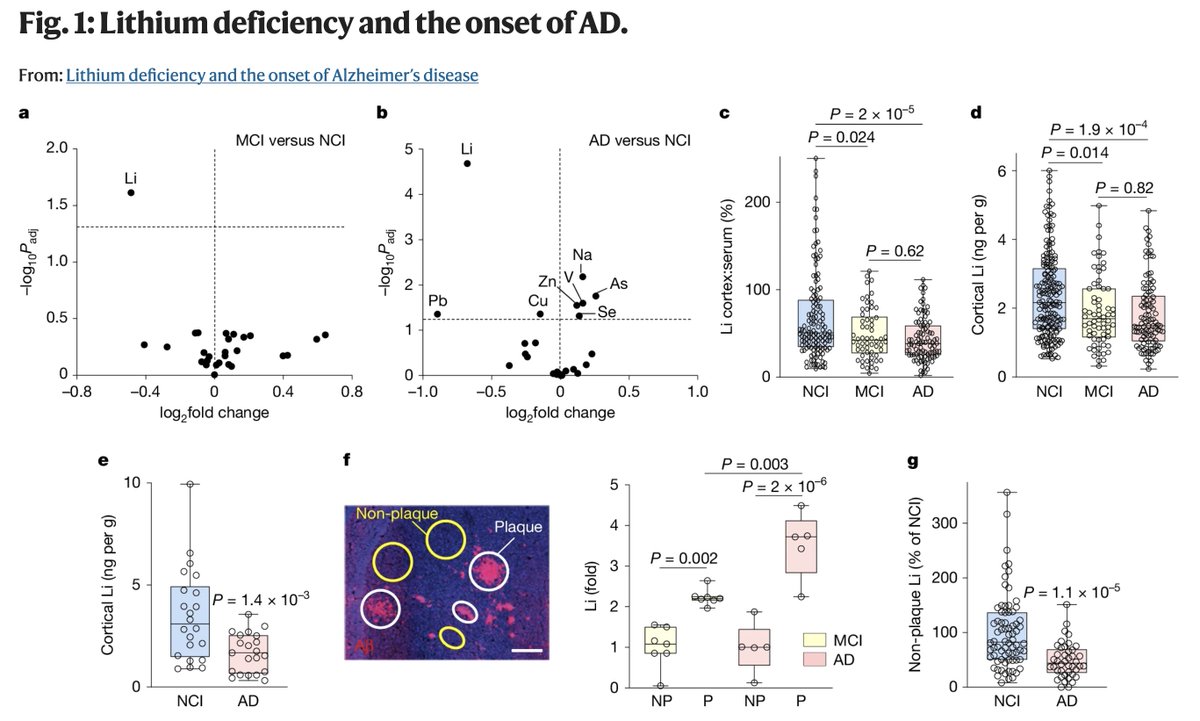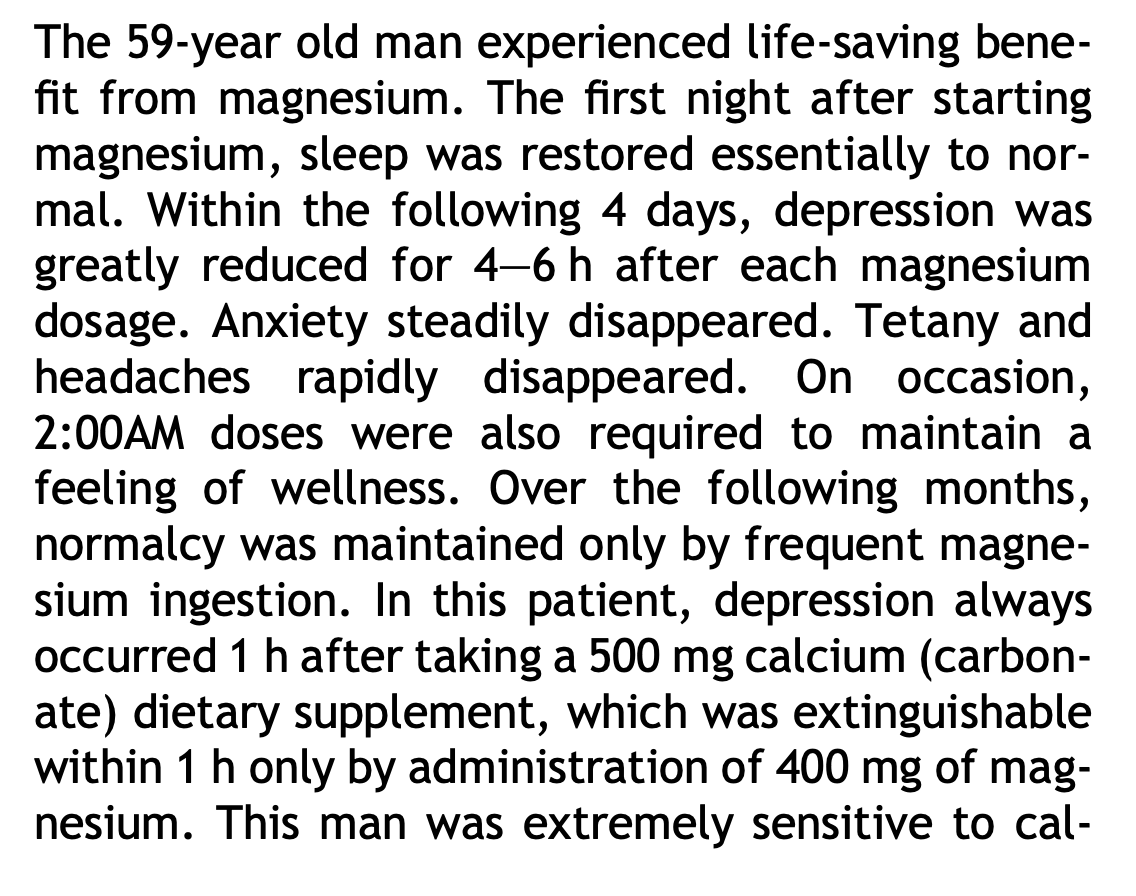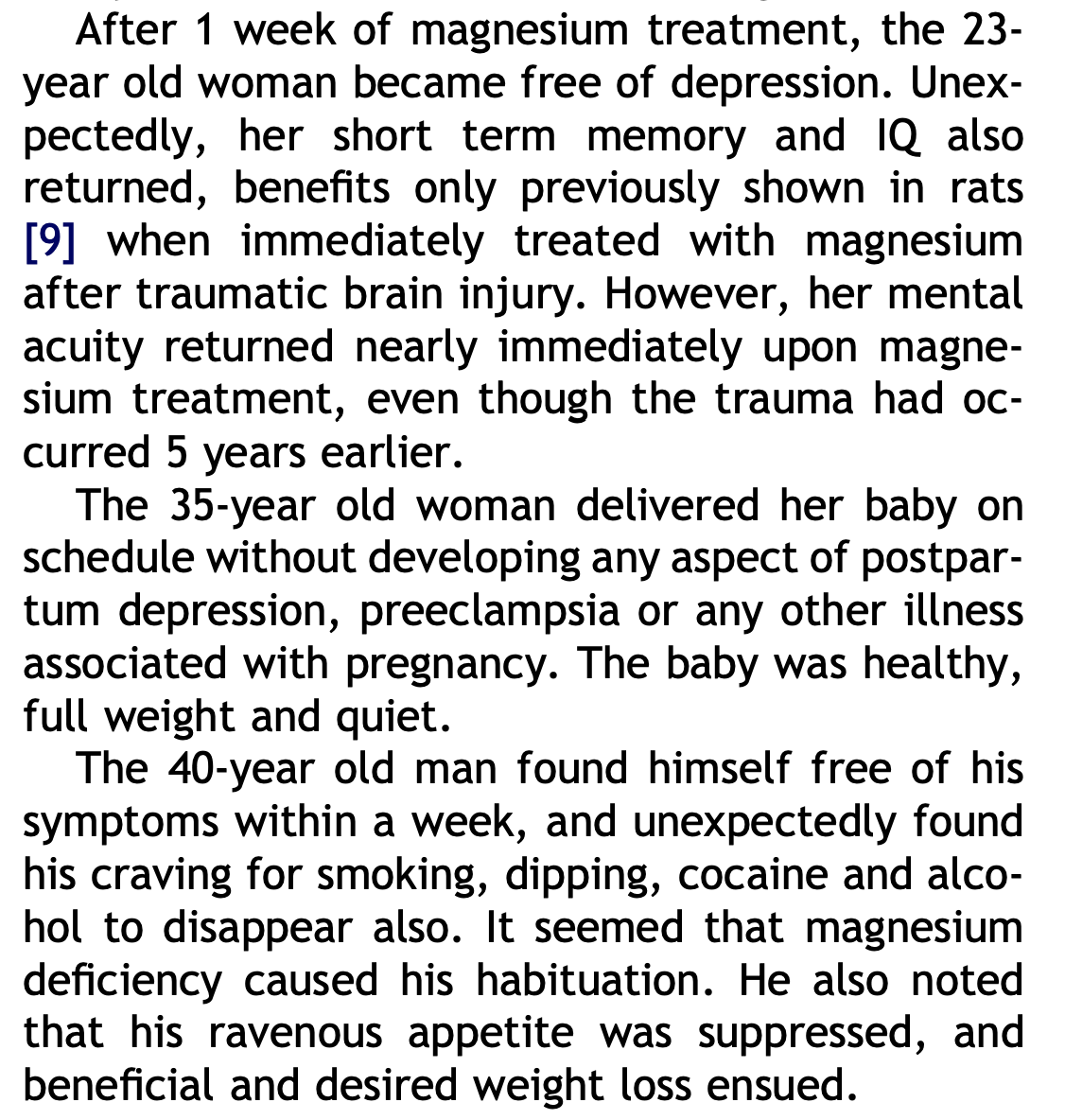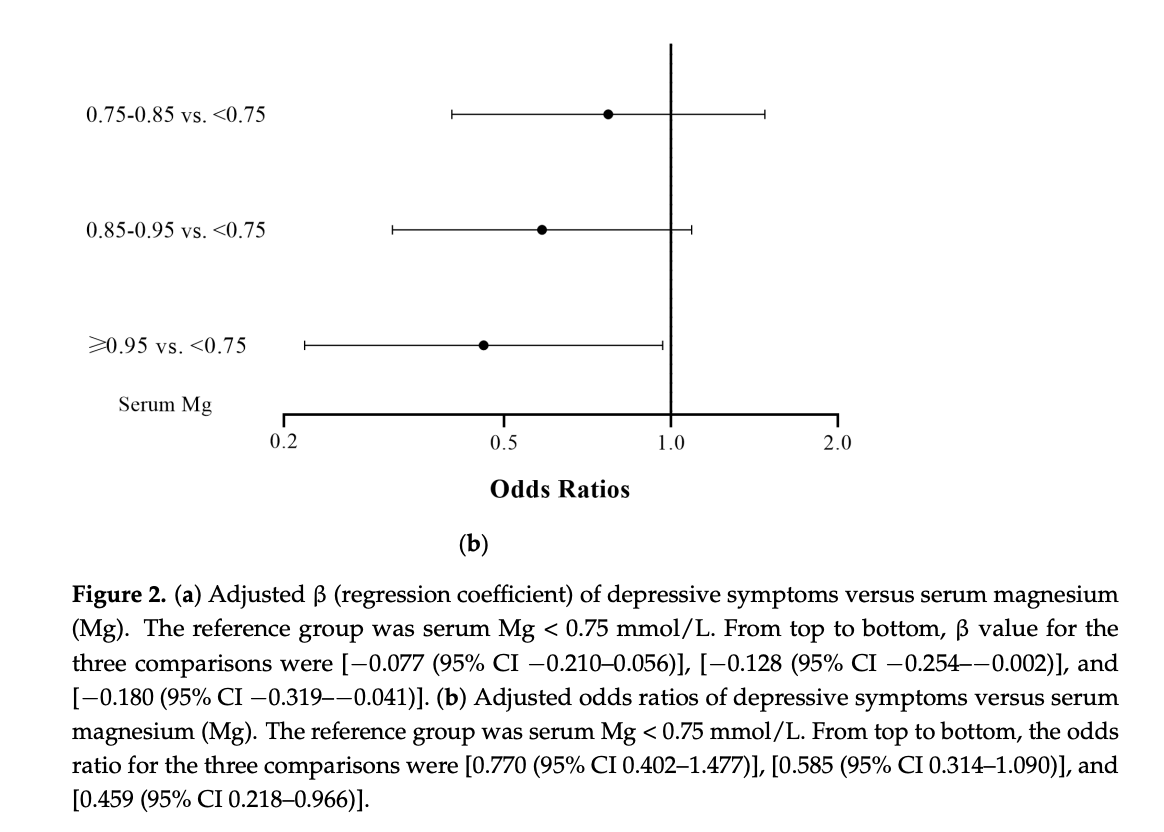The study was published in April in Nature (British Journal of Cancer).
It investigated people with existing liver cancer (hepatocelluar carcinoma).
People either got a targeted chemo surgery alone (TACE), or with 45 mg of menatetrenone (vitamin K2, MK-4).
Yes, milligrams - it is a megadose.
(2/8)

It investigated people with existing liver cancer (hepatocelluar carcinoma).
People either got a targeted chemo surgery alone (TACE), or with 45 mg of menatetrenone (vitamin K2, MK-4).
Yes, milligrams - it is a megadose.
(2/8)

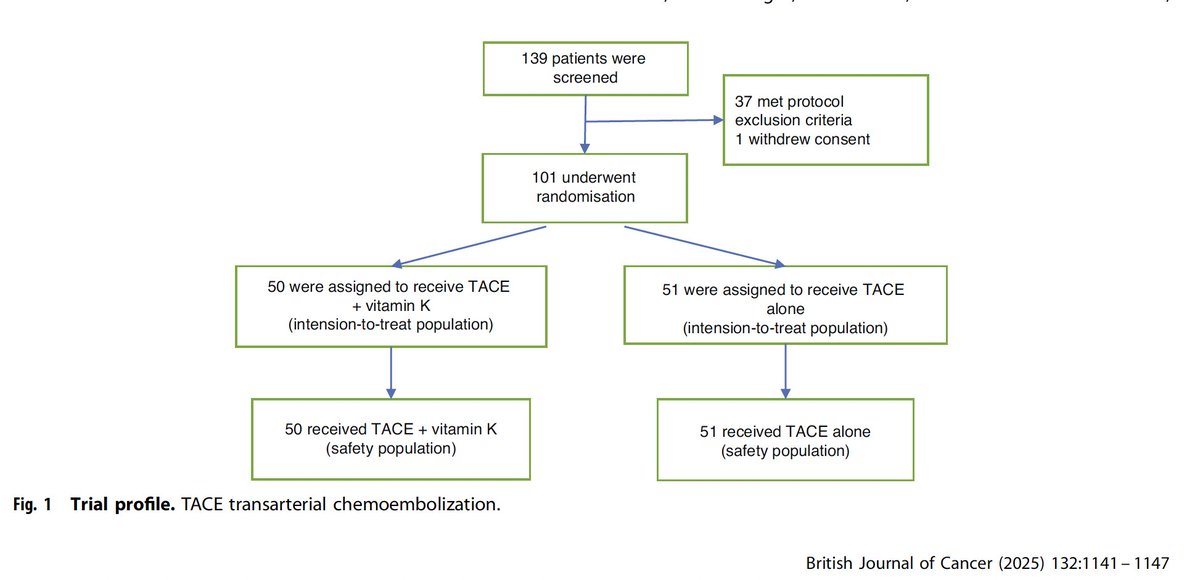
Vitamin K2 nearly doubled the progression free survival time.
In other words, adding in vitamin K2 prevented the liver cancer from worsening, and did so about twice as well as standard treatment alone.
(3/8)
In other words, adding in vitamin K2 prevented the liver cancer from worsening, and did so about twice as well as standard treatment alone.
(3/8)
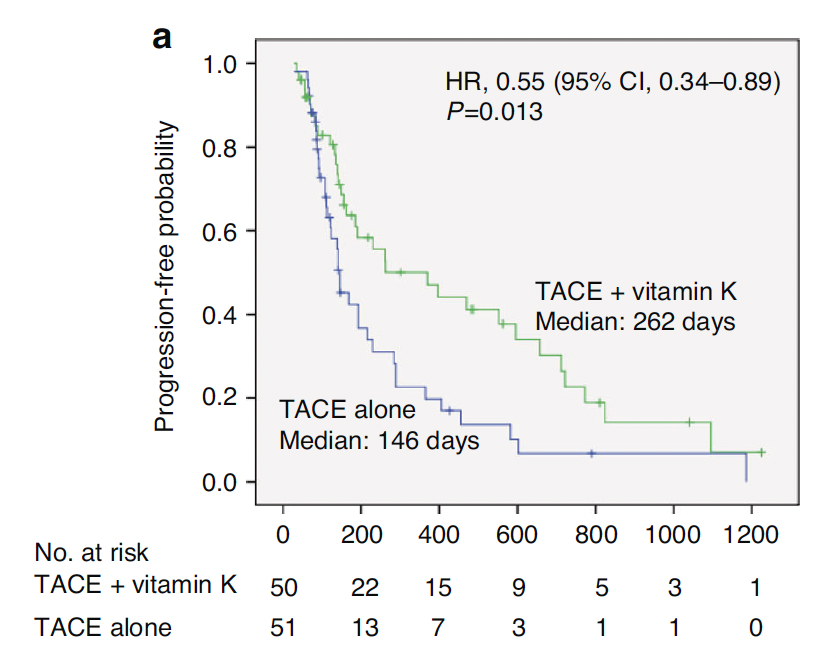
Even more striking - people entering the study with high DCP, a marker for worse liver cancer, had their progression free survival more than tripled by adding vitamin K2.
People on K2 had a 74% reduced risk of their cancer worsening.
(4/8)
People on K2 had a 74% reduced risk of their cancer worsening.
(4/8)
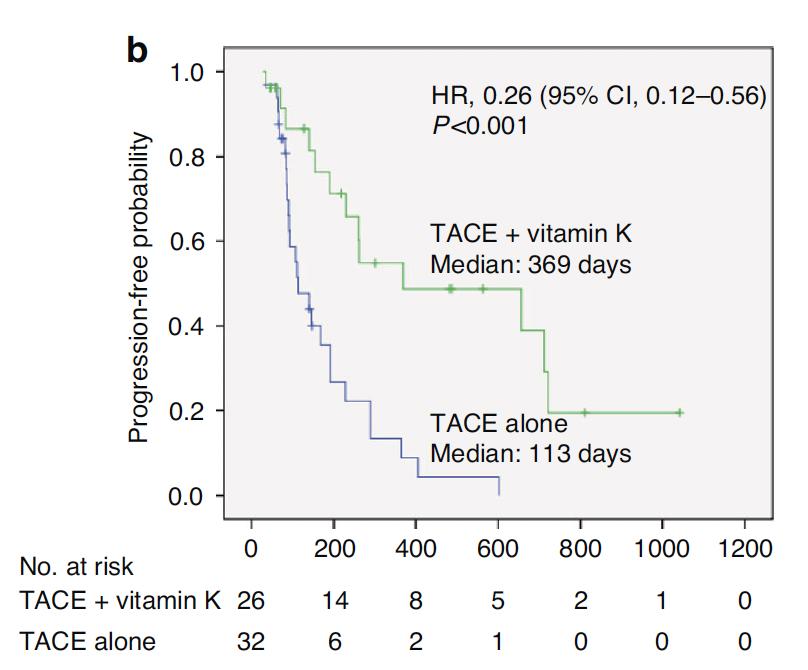
Across the board, vitamin K improved outcomes of cancer worsening.
➜ Macroscopic vascular invasion: 0 with K2 (3 without)
➜ Multicentric intrahepatic recurrence: 3 with K2 (4 without)
➜ Massive infiltrating recurrence: 0 with K2 (4 without)
➜ Extrahepatic spread: 0 with K2 (3 without)
➜ Death due to rapid tumor progression: 1 with K2 (0 without)
➜ Total events: 4 with K2 (14 without)
(5/8)
➜ Macroscopic vascular invasion: 0 with K2 (3 without)
➜ Multicentric intrahepatic recurrence: 3 with K2 (4 without)
➜ Massive infiltrating recurrence: 0 with K2 (4 without)
➜ Extrahepatic spread: 0 with K2 (3 without)
➜ Death due to rapid tumor progression: 1 with K2 (0 without)
➜ Total events: 4 with K2 (14 without)
(5/8)

Critically, there were no differences between groups in adverse events.
This is consistent with past studies of K2 megadoses, showing that they do not have any side effects.
(6/8)
This is consistent with past studies of K2 megadoses, showing that they do not have any side effects.
(6/8)
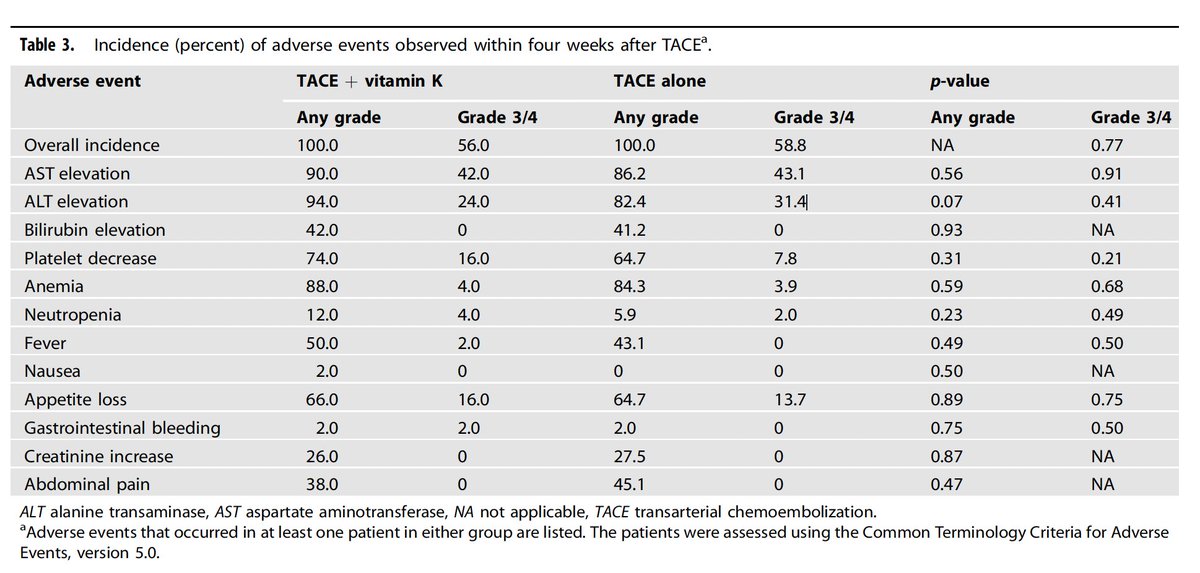
This study confirms several before it, showing that 45 mg of vitamin K2 (MK4) is highly protective against liver cancer.
(7/8)
(7/8)
https://x.com/Outdoctrination/status/1884781668701192349
Why Vitamin K2 is so protective for liver cancer:
K2 normally helps with blood clotting - it serves as a cofactor of γ-glutamyl carboxylase, an enzyme that converts preprothrombin into prothrombin, a vital step in blood coagulation.
If there is not enough vitamin K2 to make this conversion, preprothrombin gets converted into another molecule called des-γ-carboxy prothrombin (DCP).
91% of patients with this liver cancer have measurable DCP - healthy people don't have it.
DCP is a potent growth factor in the liver, as it turns on multiple hallmarks of cancer:
◇ Activates c-Met →JAK → STAT3 → increases HCC growth.
◇ c-Met → MMPs → increases HCC invasion by breaking down surrounding collagen
◇ Activates KDR (VEGFR2) on vascular endothelial cells promotes angiogenesis and increases microvessel density (MVD).
◇ Stimulates vascular endothelial cells to release VEGF, EGF, TGF-α, and bFGF, further enhancing angiogenesis and supporting tumor growth.
All of these are pathways that allow tumors to grow, have a greater nutrient supply and ability to spread.
All from vitamin K2 deficiency.
(8/8)
K2 normally helps with blood clotting - it serves as a cofactor of γ-glutamyl carboxylase, an enzyme that converts preprothrombin into prothrombin, a vital step in blood coagulation.
If there is not enough vitamin K2 to make this conversion, preprothrombin gets converted into another molecule called des-γ-carboxy prothrombin (DCP).
91% of patients with this liver cancer have measurable DCP - healthy people don't have it.
DCP is a potent growth factor in the liver, as it turns on multiple hallmarks of cancer:
◇ Activates c-Met →JAK → STAT3 → increases HCC growth.
◇ c-Met → MMPs → increases HCC invasion by breaking down surrounding collagen
◇ Activates KDR (VEGFR2) on vascular endothelial cells promotes angiogenesis and increases microvessel density (MVD).
◇ Stimulates vascular endothelial cells to release VEGF, EGF, TGF-α, and bFGF, further enhancing angiogenesis and supporting tumor growth.
All of these are pathways that allow tumors to grow, have a greater nutrient supply and ability to spread.
All from vitamin K2 deficiency.
(8/8)
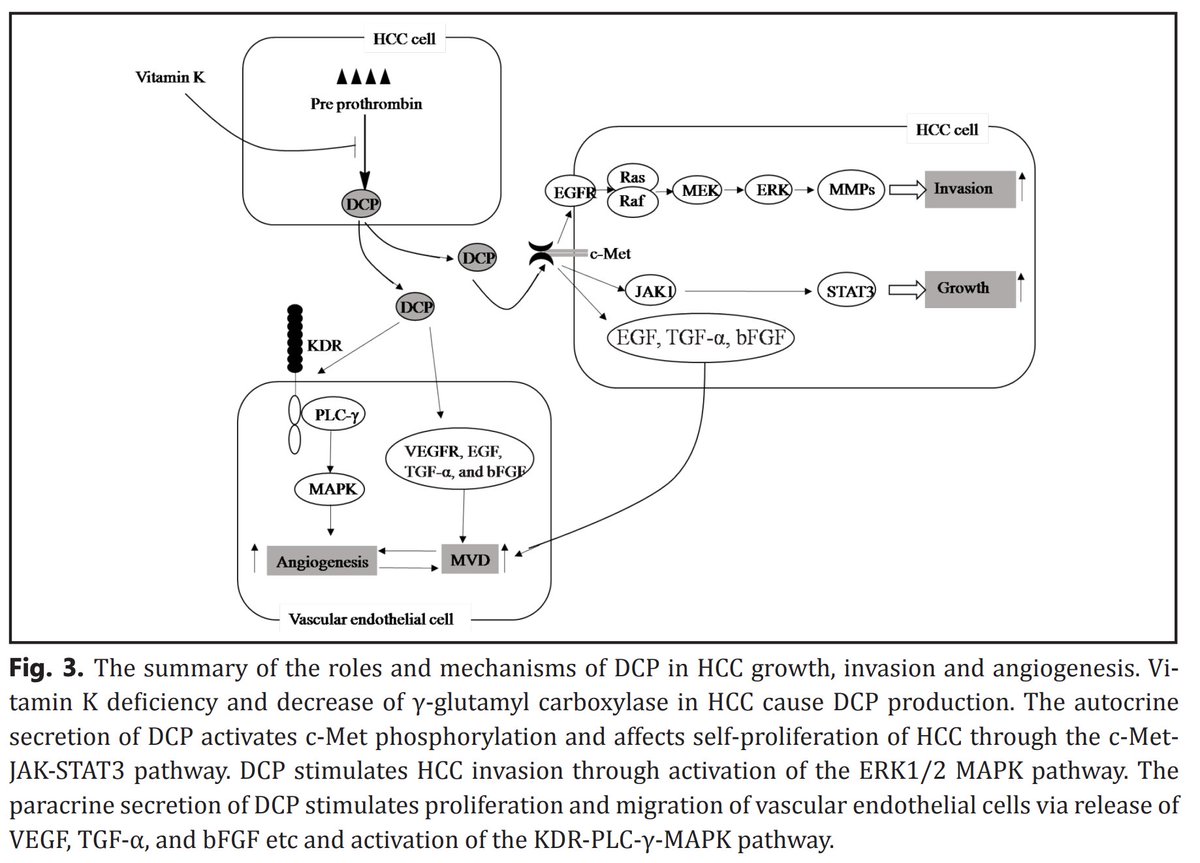
In this study, it was megadosed, but this was in active cancer.
Since DCP forms from vitamin K2 deficiency, it's in your best interest to get enough now for prevention.
One drop of this gives you more than enough. healthnatura.com/true-k2-mk4-1-…
Since DCP forms from vitamin K2 deficiency, it's in your best interest to get enough now for prevention.
One drop of this gives you more than enough. healthnatura.com/true-k2-mk4-1-…
I went more into the benefits of K2 and how to get enough from food here:
https://x.com/Outdoctrination/status/1923009920007537110
If you're looking for some personalized guidance with any of your health goals, we're here to help. Schedule a free call here: go.prism.miami/consultation
• • •
Missing some Tweet in this thread? You can try to
force a refresh

